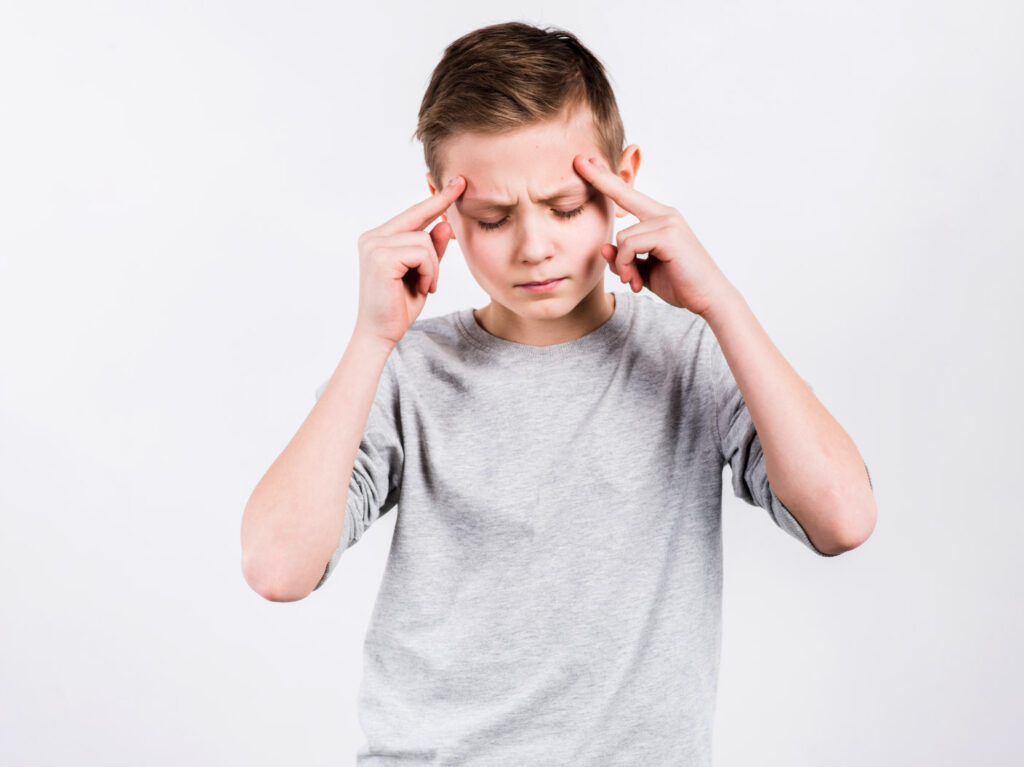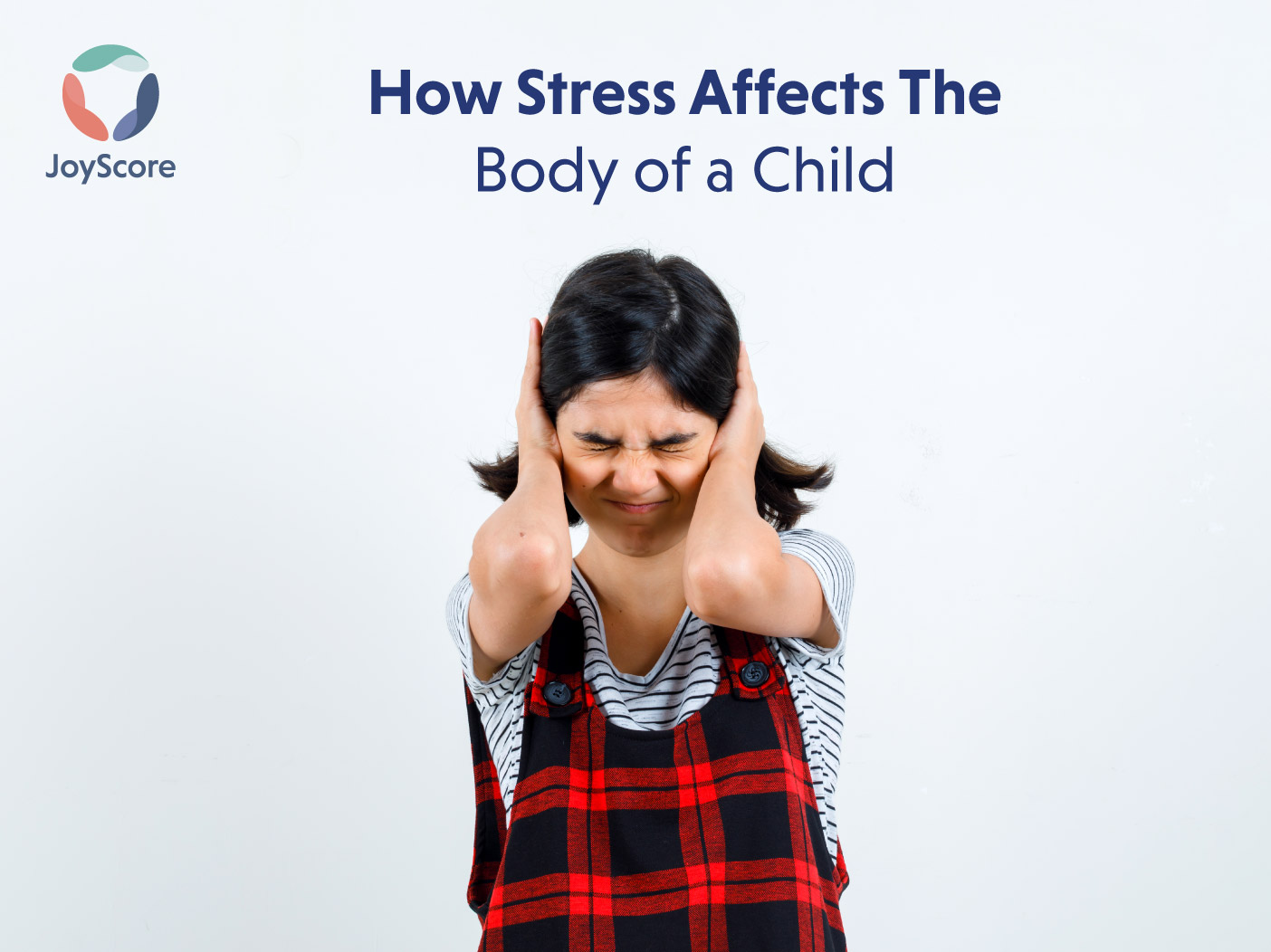When an adult is faced with a stressful situation, they can find ways to cope. However, stress affects the body of children and teens in very different ways than adults. Children and teens experience stress differently than adults because they are still developing physically, cognitively, and emotionally. Stress can also be very different for them since they are more sensitive to external factors like other people, the outside world, or their emotions. Research has shown that children under 12 have higher levels of cortisol (a stress hormone) and experience more psychological distress when placed in a difficult situation than adults. As a result, children and teens react to stress differently than adults. Here’s an overview of how stress affects the body of children. To learn more about stress and its effect, download Joyscore.
What is Stress?
Simply put, stress is a reaction to a difficult or dangerous situation. The body reacts to stress by releasing hormones like cortisol to help you focus and react quickly to a situation. However, if the stress is too high or lasts too long, it can affect your health. And while some people can handle high levels of stress well, others can experience high amounts of psychological distress. So, what causes stress? Stress is caused by too much or too little of something called “psychological distress.” This distress comes from an event or situation that is challenging or dangerous. What’s important to note, though, is that this type of stress is not always harmful.
Personality and Stress Response Differences in Children
Human beings are complex creatures. This means that no two people are the same. One of the most notable differences between children and adults regarding stress is their personalities. Personality is essential to a child’s development because it helps determine their future behaviour, emotions, and beliefs. Personality is not just about the individual, though. It’s also about the relationship between an individual and their environment and how that relationship affects their personality. Personality is not something that is fixed once a person grows up. It changes throughout a person’s life due to genetics, experience, and lifestyle choices. On top of this, children’s personalities continue to develop and change throughout childhood. Personality can change because of what a child experiences. For example, a child bullied at school might develop a more cautious personality since they try to avoid the bully. Personality can also change because of what a child discovers. A child who discovers music might develop a more open-minded personality since they are exploring something new.
Is the Body of a Child Able to Handle Stress?
This one is kind of a big question mark, isn’t it? The short answer? It depends. Each person is unique and handles stress in different ways. Some people can handle high levels of stress due to their personalities, and others can’t handle high levels of stress on their own. When looking at a child’s body, it’s important to note that they are still growing and developing physically, cognitively, and emotionally. Children and teens also have heightened levels of sensitivity that make them feel things more intensely than adults do. With all of this in mind, it’s essential to ask yourself this question. Is the body of a child able to handle stress?
Responses to Stress in Children
Let’s start with the obvious one. Stressed children under 12 experience high cortisol levels in their bodies. This causes them to become more aggressive, act out, and struggle with being social. Children also experience increased heart rate, breathing, and sweating when stressed. Toxic stress can cause your child’s brain chemistry, brain structure, and gene expression to change. Your child’s developing brain architecture might be compromised by toxic stress, which could cause lifelong learning behavioral and physical and mental health problems. When the Hypothalamic Pituitary and Adrenal (HPA) hormone axis is overstimulated, blood concentrations of the stress hormone cortisol are elevated due to toxic stress. Long-term changes in inflammation and immunity can develop as a result of these increased blood cortisol levels. The consequences of toxic stress, including alterations in brain structure, may include anxiety and impaired memory and mood control. A child’s unsolved stress may be indicated by
- Headache,

- Decreased appetite or altered eating habits,
- Bedwetting, nightmares, and sleep disturbances.
- Upset stomach or vague stomach pain
- Anxious, fearful, and unable to relax
- Angry and aggressive or stubborn behavior

New or worsening physical symptoms may lead parents to suspect that a higher stress level is present.
Children will learn how to deal with stress differently as they get older. Some children will learn to cope with stress by escaping it. For example, a child who is bullied might do something that takes their mind off of the adverse event. Another coping strategy that children use is avoidance. This is often a dangerous coping strategy that conveys that something is wrong but needs to be avoided. Avoidance can take many forms, like shutting down and avoiding a problem, a person, or an idea.
Coping Strategies for Children and Teens Under Pressure
As we mentioned above, children and teens are more sensitive to the world around them. This causes them to feel what other people feel more intensely. As a result, they will seek out help when they are under stress. Some children will turn to their parents for support during stressful situations. This often happens when the child is a minority and facing discrimination. Other children will turn to their friends for support during stressful situations. This is often a sign that the child is dealing with stress alone. Yet, other children will turn to their teachers for support during stressful situations. This is especially common for children who are struggling in school. If the child continues to struggle, here are some tips for parents:
- Make sure all family members are safe, protected, and cared for.
- Creating a secure, dependable, and nurturing home are vital.
Conclusion Stress affects the body and mind of any person. However, it’s essential to understand how stress affects the body of a child. Staying healthy and protected depends on having secure, constant, and caring relationships with children’s surroundings while making sure children are safe from physical harm and emotional problems in secure relationships. Furthermore, close parent-child relationships can nurture a child’s self-esteem and sense of self-worth.
Download the JOYSCORE APP to enjoy a healthy and Joyful life.
Download on the Appstore
Get it on Google Play



